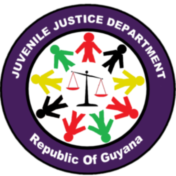GENERAL PROVISIONS
A court can continue hearing a matter that was started by another court. If a decision was already given by the first court the other court can complete the matter by ordering a sentence. If no decision had been given the matter would be heard afresh. Where the matter is being heard afresh, if the parties consent, any evidence already taken can be used rather than taking it all over again. A sentence ordered in one magisterial district can be reviewed in another district.
Only a person whose presence is necessary in relation to a hearing related to a child will be allowed to be present during the hearing. For any other person to be present that person must obtain the permission of the court.
It is an offence for a juvenile to escape from a facility or any other place or while being taken from or to such a place during his or her period of custody.
If a juvenile who has escaped is arrested, he or she must be returned to the facility or other place. That juvenile may then either be disciplined according to the rules of the facility or other place or be charged and placed before the court.
It is an offence for anyone to assist or encourage a juvenile to escape from a facility or other place or to harbour that juvenile or prevent them from returning. Encouraging or aiding a juvenile to breach a term or condition of a sentence or other court order or preventing them from performing such is also an offence.
Taking or attempting to take prohibited items into a facility or delivering or attempting to take them to a juvenile in a facility is an offence.
Publication or disclosure of information contained in a record on a juvenile in cases not authorized by the Act or permitted by the Court is an offence.
Where a juvenile is charged for both indictable and summary offences they may be heard together. Separate trials are not necessary.

The general law on the admissibility of statements made by accused persons applies to juveniles. Additionally, for a statement made to a police officer or other person in authority by a juvenile who is a suspect to be admissible in evidence the provisions set out in the Act for taking of statements from juveniles must have been complied with and the statement must have been given voluntarily by the juvenile.
In relation to a statement made to a person who is not a person in authority, that statement would only be admitted into evidence if it was freely and voluntarily made. In this regard, a lawyer , parent or other adult that a juvenile consults for assistance during questioning by the police is not a person in authority.
A certificate of birth is evidence of the age of a person but if one is not available the court may accept or consider other reliable information, including the testimony of a parent or the appearance of that person.
A child or juvenile may give evidence before a court if the court has explained the duty to speak the truth and the consequences of failing to do so to that child or juvenile. The forms used under the Criminal Law (Procedure) Act and Summary Jurisdiction (Procedure Act can be used under this Act where necessary.
